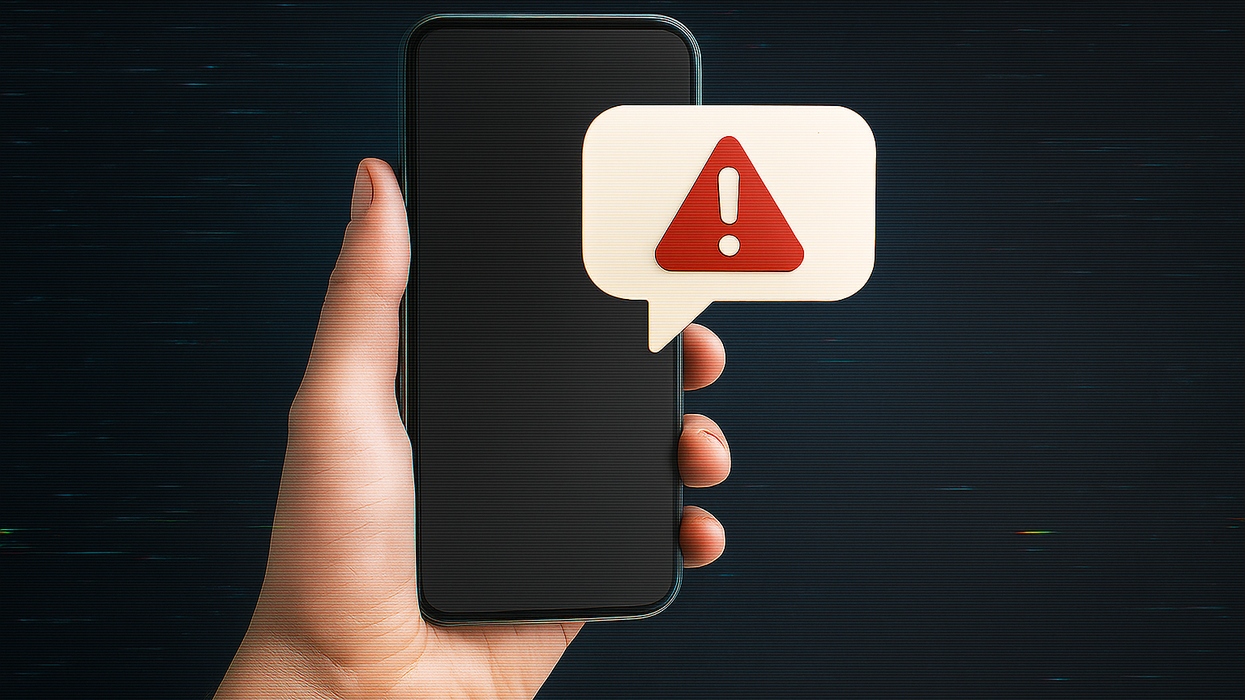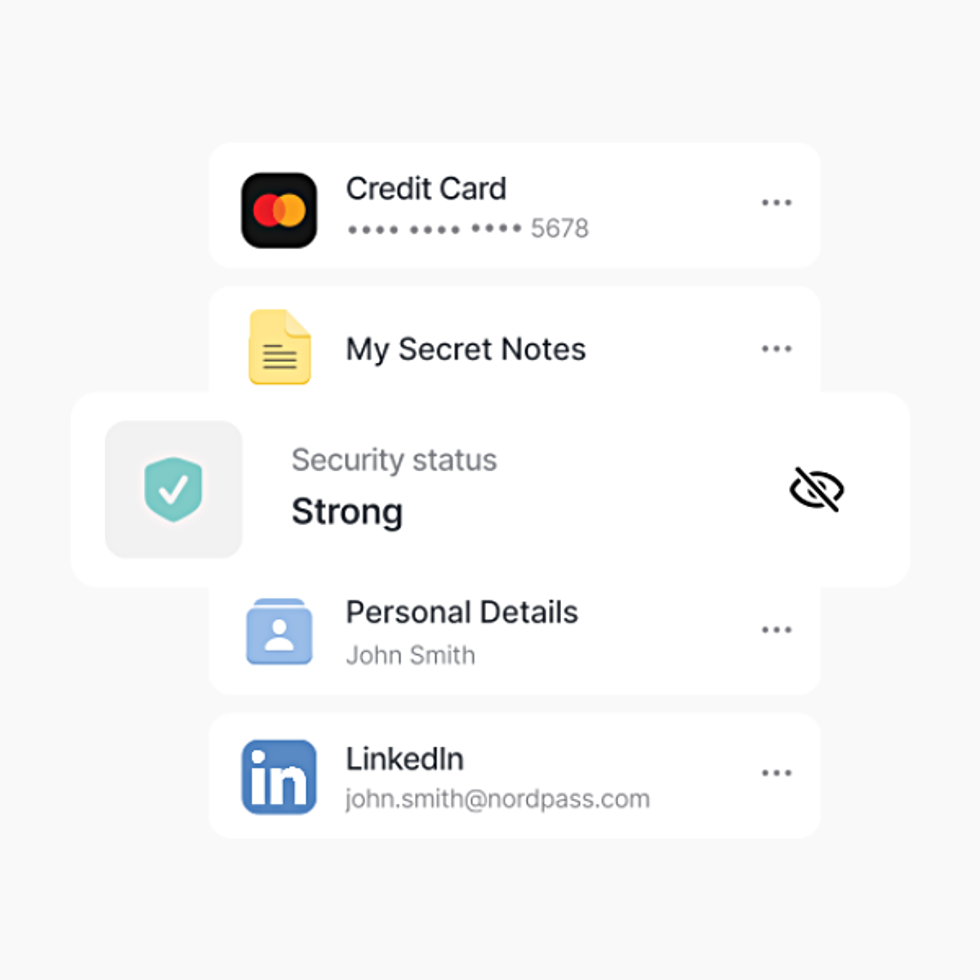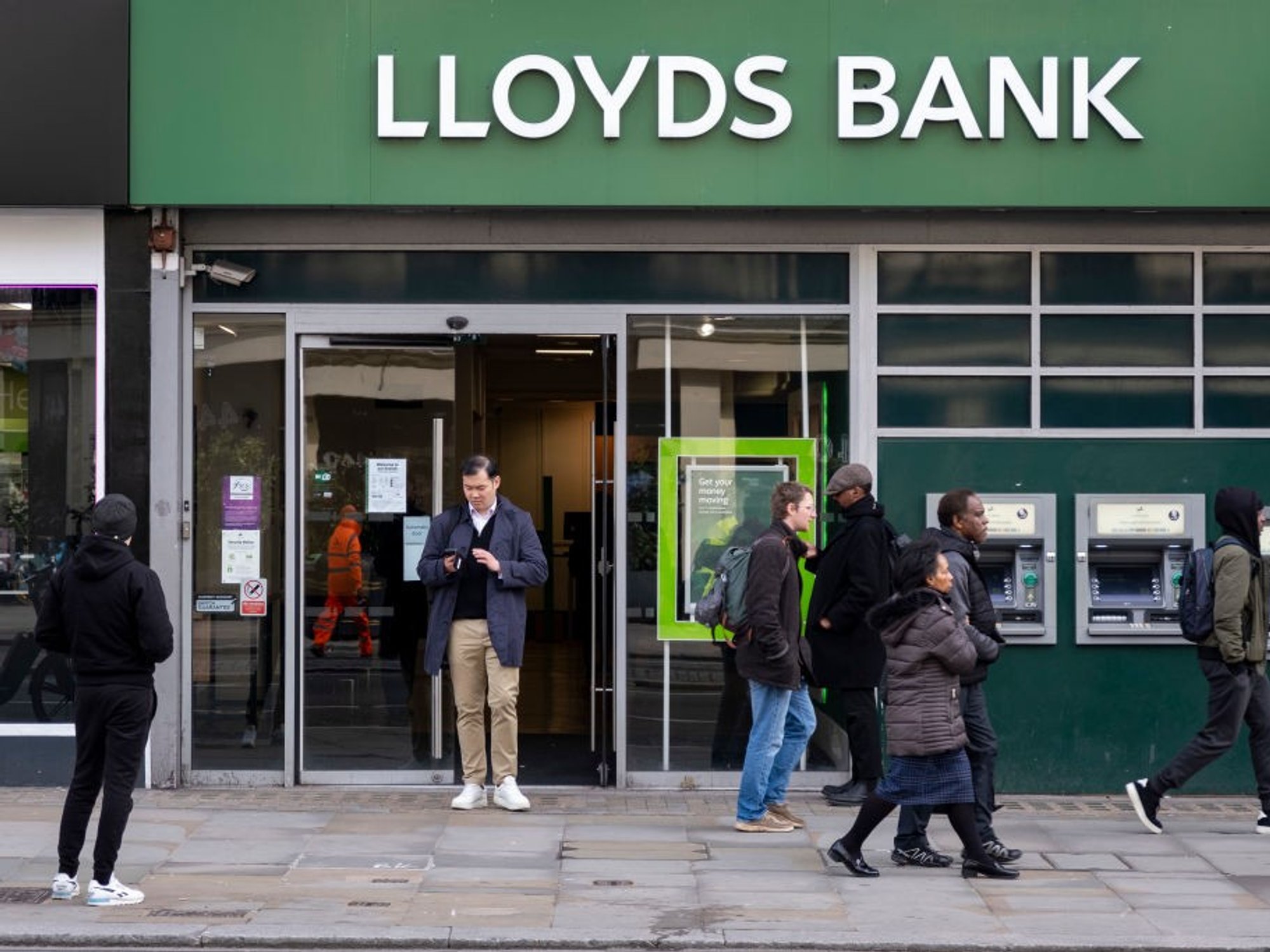Millions of Brits have been scammed by 'Government, banks, and more' – take these steps to protect your money

Millions of Britons are being targeted by scam messages that appear to come from a trusted source such as a delivery company, bank or government body,
|SORA/GB NEWS
All products and promotions are independently selected by our experts. To help us provide free impartial advice, we will earn an affiliate commission if you buy something. Click here to learn more
Fraudsters may be using AI to disguise their fake messages
- Millions of Britons are being targeted with scam messages
- Scammers are pretending to be the UK Government, banks, and more
- Over 50% of scam messages are believed to have used AI
- Experts recommend taking extra precautions to secure personal details
Don't Miss
Most Read
Latest
Millions of Britons are being targeted by scam messages that appear to come from a trusted source such as a delivery company, bank or government body, according to a survey from YouGov.
More than half of those targeted (56%) believe the attempts used AI, such as fake voices or images.
In the past, several scam messages were more easily identifiable, with text often filled with spelling mistakes. Now with AI, the fake messages can blend in more easily.
TransUnion chief executive Madhu Kejriwal said: “As fraudsters exploit artificial intelligence, scams are becoming more sophisticated and harder for consumers to spot due to their sheer volume, accuracy and tone."
Several Britons have fallen victim to and lost money to scams impersonating brands, with some still unaware of how the fraudsters were able to achieve this, while more than one in 10 of those scammed (11%) lost at least £1,000.
Younger consumers appear to be potentially more vulnerable as they may be more likely to rely on mobile messaging, with 13% of 25 to 34-year-olds and 11% of 18 to 24-year-olds losing money to scams.
It's been reported that UK shoppers affected by fraud have lost an average of £757.64 over the past 12 months.

UK shoppers have fallen victim to scam messages, losing an average of £757.64 over the past 12 months
|PEXELS
So, how are these scammers able to be so successful?
Many are impersonating well-known companies, banks, or the UK Government.
The UK’s most impersonated brands are Royal Mail – with 40% of UK adults saying they have received a fake message from fraudsters claiming to be from the firm – and Evri – with 38% reporting a similar message from the courier.
Scammers have been able to impersonate these brands through delivery fraud, where you are notified about a fictitious upcoming or missed parcel delivery.
Mr. Kejriwal stated: “These scams don’t just look real, they feel real. Whether it’s a delivery text arriving just when you’re expecting a parcel, or an email that looks like it’s from your bank, it’s more important than ever that consumers stay vigilant.”
Chad Reimers, general manager of identity and fraud at TransUnion in the UK and Europe, said: “Consumers should be aware that even if a relatively small sum of money has been lost, it may just be the first phase of the fraudster’s objective.
"In some instances, once fraudsters have access to personal details or login credentials, they will look to ‘take over the account,’ leading to further financial withdrawals, applying for additional credit lines and in some cases may even coach or coerce witting or unwitting money mules to shift funds quickly through accounts to launder their ill-got gains.
“It is, therefore, important that consumers stay vigilant and immediately report suspicious activity, especially in situations where they suspect their details have been compromised, and not just when money has been taken.”
So, what can you do to prepare for these fraud attempts before they happen?
Security experts recommend a few steps to help shield against these types of attacks, starting with managing your passwords. Nobody can recall dozens of unique alphanumeric passwords without help, and that's where password managers come in.
These popular applications can generate super-secure passwords for every account, storing them in an encrypted safe that can be accessed from any of your devices. To log in, most of these applications only require a quick biometric check – facial recognition on the iPhone or a fingerprint scan on Windows PCs and Android.
Switch to 1Password for free

The award-winning 1Password is designed to generate and store unguessable passwords, passkeys, credit card numbers, national insurance numbers, and much more. This encrypted vault is available across all of your favourite devices, including iPhone and Android, Windows and Mac computers, iPad and other tablets. Its built-in WatchTower feature evaluates password strength and warns about data breaches that impact you. 1Password is currently free to test for 14 days with no obligation to subscribe
1Password
When it's time to log in to your account, the password managers can autofill all of the details with a tap. Many of the most popular options also have systems that monitor ongoing data breaches, warning if any of the websites or mobile apps that you use have been attacked by criminals. If the worst happens and your details are compromised, you can rest easy knowing that none of your other accounts share the same password.
It's critical to never reuse passwords across different accounts, as this creates a dangerous domino effect if one is compromised.
Experts recommend using a password that's at least 12 characters long, includes uppercase and lowercase letters, numbers, and special symbols. Avoid using recognisable words, names, sequences, or patterns that could be easily guessed.
Get 52% off NordPass password manager

NordPass is a secure password manager that works across your favourite devices, including iPhone and Android, Windows and Mac computers, iPad and other tablets ...it will evaluate your password strength, autofill login details for you, and warn about any data breaches on the Dark Web that impact you. It's a one-stop-shop to improve your online security and fightback against hackers from the team behind the award-winning NordVPN
NordPass
$2.29
$1.09
Outside of the password itself, enable multi-factor authentication wherever possible to add an extra layer of security. This sends a one-time passcode to an email account or mobile phone. Even if hackers get their hands on your username and password, this will prevent them from logging into your account.
Finally, consider using passkeys where available, as major providers like Google, Microsoft, and Apple support this alternative. These allow you to sign in to apps, websites, and other online accounts in the same manner that you unlock your device – using a fingerprint, a face, or an on-screen PIN.
LATEST DEVELOPMENTS
- Best robot vacuum cleaners
- Best VPN deals
- Hackers are stealing common passwords as Gmail attacks spike
- Secret Samsung code will DOUBLE the storage on latest Galaxy phones
- Best mattress toppers
- New Android smartphone uses AI to block ALL nude content
Explaining the advantages of using a passkey over a traditional password in an FAQ on its website, Microsoft writes: "Passkeys are the future of authentication, and for good reason!
"They're incredibly easy to use and intuitive, eliminating the need for complicated password creation processes and the hassle of remembering them. Plus, they're unique to each website or application, so you don't have to worry about someone using your passkey to access other services.
"And unlike passwords, passkeys are resistant to phishing attempts, making them a much more secure option. Best of all, you can use your passkey across all your devices, so you never have to worry about forgetting your password again!"
More From GB News










